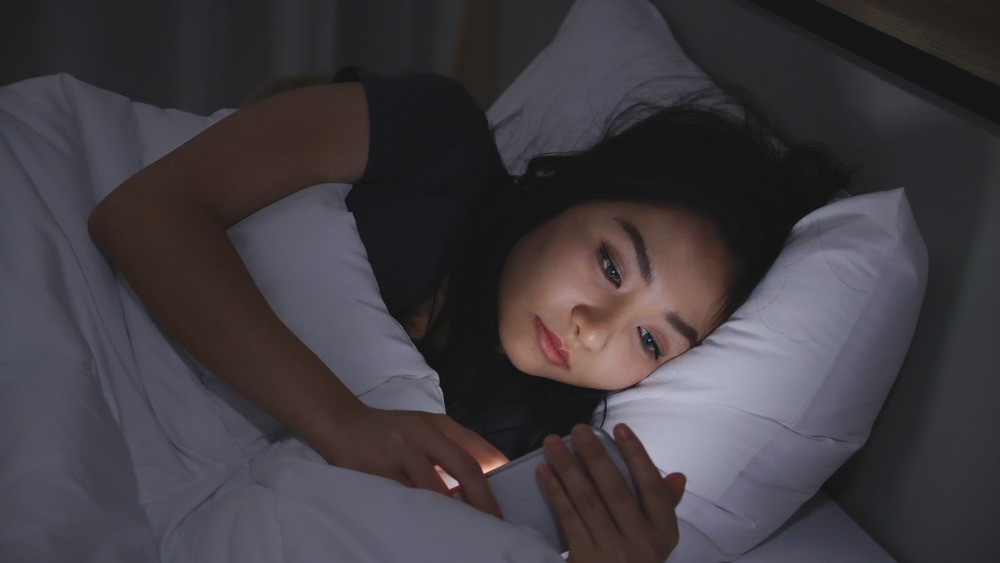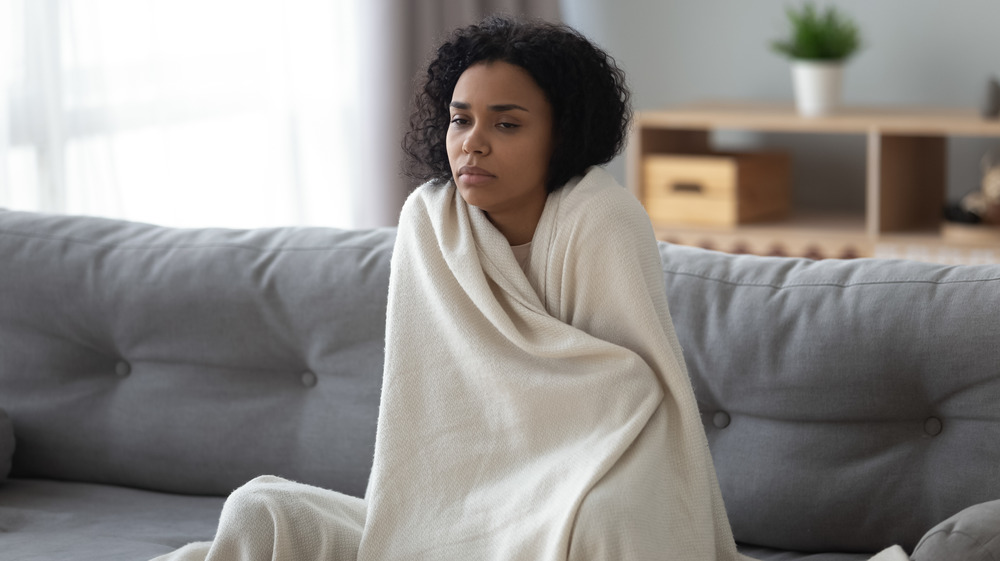Everyone feels anxious from time to time. It’s a natural part of human nature. But some people can’t seem to shake the feeling that something is wrong. Their minds are always on, circling potential causes for the feeling. And when their minds can’t find a reason, it starts the process all over again.
Reading this description alone sounds exhausting. For those who experience anxiety, the exhaustion is very real. Mayo Clinic lists “feeling weak or tired” as one symptom of several chronic anxiety disorders. Other symptoms include increased heart rate, rapid breathing, a sense of impending doom, and difficulty sleeping. But those who suffer from anxiety know that the exhaustion is all but constant — and for the longest time, researchers couldn’t figure out why.
Some people blame anxiety-related exhaustion on something called adrenal fatigue. The theory goes that the adrenal gland — the production center for adrenaline and other hormones associated with anxiety — gets worn out when it is “switched on” for too long. On paper, this theory makes sense. Many people with anxiety felt that adrenal fatigue treatment might offer them some relief.
Unfortunately there is no evidence that adrenal fatigue exists. A review conducted in 2024 collected 58 different studies, trying to find evidence of adrenal fatigue. In the end, the researchers were forced to conclude that it did not exist, a view shared by the Endocrinology Society and most medical professionals, according to Harvard Health Publishing.
Anxiety’s effect on sleep

Although recent studies ruled out the existence of adrenal fatigue, there is still hope for people with anxiety. A 2024 study published in the Journal of Sleep Research found that chronic stress — like constant anxious feelings — disrupts a person’s sleep cycles.
Of course, this isn’t news for some people. Worrying about an impending test or interview or breakup has caused more than a few sleepless nights. But the 2024 study found that the impact ran deeper than that. Researchers found that even once people with anxiety fall asleep, their condition affects the quality of the sleep they get. Their REM cycle is not as effective as it should be, which means they are not dreaming or resting the way they need to be (according to American Sleep Association).
Sleep Foundation, another prominent American organization, highlights the effects of anxiety on sleep and of sleep deprivation on anxiety. On their website, they cite a 2024 study in the Journal of Neuroscience that found people with anxiety were almost ten times more likely to develop insomnia. When referencing the symptoms listed by the Mayo Clinic, “difficulty sleeping” is a notable inclusion. The Foundation also cites a 2024 study from the same journal that looked into the way sleep deprivation affected people with anxiety problems.
When these two studies are put side by side, it is easy to see the negative spiral that forms between anxiety’s impact on sleep and a lack of sleep’s impact on a person with anxiety. It’s a feedback loop that is hard to break. Self-care and medication can help and may form a practical foundation for treating anxiety disorders.




